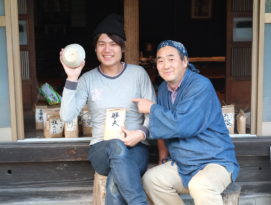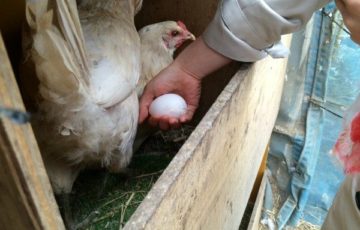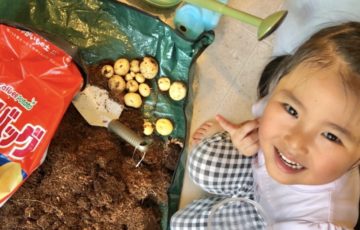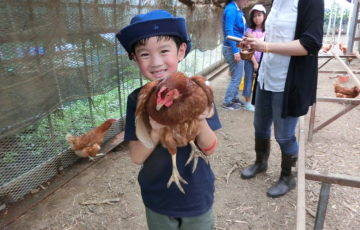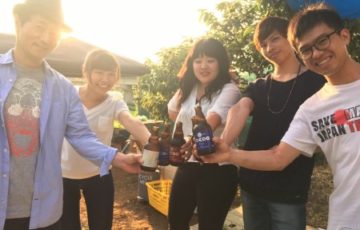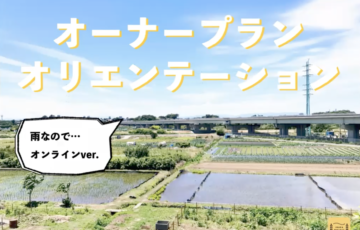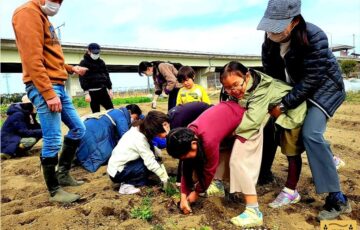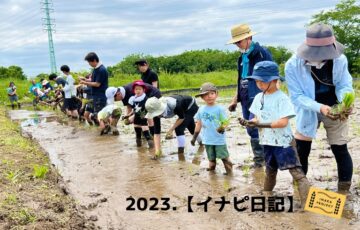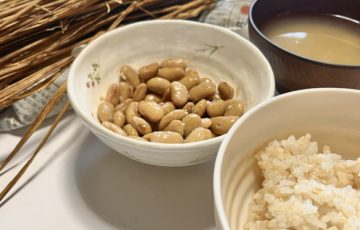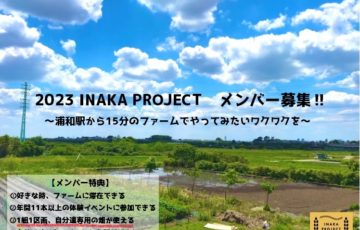
昨日はオーストラリアの旅系カルチャー雑誌の取材でした。
Interview Questions:
Q1. Detailed description of your profession and what you do on a day-to-day basis. Even if every day is different, we’d love to hear what you do, how you run the farm etc.
《英語》
The Inaka (Rural) Project is based around a traditional Japanese country house, standing for more than 200 years. The person who splits the firewood that warms us is the master of the house, Harunobu Sugiyama. He has been growing rice here for many years. I’ve teamed up with him and others from the city to grow pesticide-free rice and vegetables.
This old house, or kominka in Japanese, is used as accommodation, a café, coworking space, and an event facility. In winter you can use the traditional hearth. Sometimes hunters would grill the wild boars they caught in the mountain behind the house. Here you can experience the Japanese organic lifestyle.
I was born and raised in a place that wasn’t too city, nor too country, so from a young age I felt a balance of both natural and man-made surroundings. I could go shopping or take in the sites of Tokyo, or head out to the mountains or the ocean, to ride waves, fish and collect seasonal ingredients.
In the same way, I have enjoyed both organic and inorganic food in moderation. Sometimes I would still eat a big mac from the drive-through, while growing and enjoying the rice and vegetables I’ve grown myself. Last year, I got a hunting license.
To me both paths have contributed and enhanced my lifestyle. Even if one’s base is in the city, if you have a place where you can immerse yourself in nature, I feel like you can truly grow. This is why I began this project with Harunobu Sugiyama.
From the spring of 2015, with the support of local farmers, we’re planning to start a 2000m2 vegetable field, 1000m2 rice terrace and a poultry farm in Saitama, about 30 minutes from Tokyo.
We plan to run 3 programs at this location.
•For school children
•A farm-experience for visitors and tourists
•A corporate part-owner farm
Using this rice and vegetable farm as a base, we’re hoping to create a complete Japanese agricultural experience. We’re also in thinking of including other aspects, such as fishing, at later stages.
《日本語》
Inaka(rural) projectでは築200年以上の古民家を拠点としており、この古民家のオーナーであり、米作りを長年行っている陶芸家の杉山春信氏とタイアップして都会の人達と無農薬の米作り、野菜作りを行っています。古民家はcafe、宿泊施設、コワーキングスペース、イベント施設として活用されており、薪ストーブで暖を取ったり、囲炉裏で鍋を食べたりします。裏山にはイノシシが沢山いるのでたまに猟師さんが持って来てくれた肉でBBQをして食べたりもしながらここでは日本のライフスタイルを体感することが出来ます。
僕は生まれも育ちも、都会過ぎず、田舎過ぎない街で育ち、昔から人工的なものと、ナチュラルなものをバランス良く体感してきました。普段からTOKYOで買い物したり、観光したり、又、海や山に出かけて波に乗ったり、釣りをして旬の食材を捕まえたり。同じ感覚で、アンオーガニックフードもオーガニックフードも適度に両方楽しんできました。ドライブスルーでビッグマックを食べることもありますし、去年は狩猟免許を取得し、米作りや野菜作りを通して自分で育てた農作物も食べています。自分にとってどちらもライフスタイルを彩るエッセンスで、どちらからも様々な刺激をもらってます。そういった環境を通して、都会に生活ベースを置きながらも、大自然の中に身を置ける場所があれば、都会のライフスタイルが、より豊かになるんじゃないかと思いこの鴨川で杉山とタイアップしてプロジェクトを始めました。
2015年の春から、TOKYOから30分ほどの距離にある、さいたま市にて地元の農家さんとタイアップして、1000坪の田んぼと2000坪の畑、1つの養鶏所を使って3つのプログラムを中心としたファームをスタートします。このファームでは農業(お米作り、野菜作り)、畜産業がベースに日本のライフスタイルを体験するファームにする予定です。漁業なども入れていけたらいいなと思っています。
1. 子供向け放課後ファーム(after school)、
2. インバウンド向け体験ファーム、
3. 法人向けのオーナー制ファーム。

Q2. How long have you lived in Chiba? If you didn’t grow up here, what inspired the move?
《英語》
I have not been living in Chiba permanently, but have maintained a Duel-life, travelling between the city and country.
《日本語》
移住はしていません。DUEL LIFEを基本として、常に新鮮な感覚で都会と田舎を行ったり来たりしています。
Q3.What initiated your interest in organics and organic farming and the idea of having people from Tokyo come and grow/plant their own vegetables? Do you think it is a growing industry?
《日本語》
数年前にアフリカに旅をしにいって、サバンナでキャンプをしてきました。そこには地平線まで続く壮大な大自然と、野生動物の営みがあり、シンプルに「生きる」という事を全身で感じました。そして日本のライフスタイルを見つめ直したときに、物質的に豊かになってきているけれど、精神的な豊かさに欠けているなと感じました。それは時代と共にモノが溢れ、食うに困らず、便利になったおかげで「生きる為に生きる」必要が少なくなったからなんだと思います。そして、それは特に都会のライフスタイルによく見受けられます。日本の都会では、時間通りに物事が動き、お金を使えば大抵のものが手に入り、一級のホスピタリティーやサービスを受ける事ができます。便利にはなりましたが、そこに”生活する”エッセンスはあっても、”生きる”というエッセンスがどこか不足している気がするのです。そういった理由から、都会のライフスタイルに”自ら育てて、食べる”といった田舎の生きる為のエッセンスを取り入れる事ができたら、失われていっている大切なモノもしっかりと取り戻し、より豊かなライフスタイルを手に入れる事が出来るんじゃないかなと思ったのです。
→はい。日本でも需要が出てきていると思います。特に若い女性の間で注目されているのではないでしょうか。ファッション的な部分もあるとは思いますけど。

Q4.What do you love about Tokyo? How often do you go and what are some of your favourite things to do and see there?
《英語》
Tokyo is where people, goods and information always gather. I like it because you can see the flow of the various cultures and ages of Japan.
I go to Tokyo once or twice a week. There is such a variety of cultures in TOKYO: From the skyscrapers to downtown, from young to the elderly… Once you cross one the many canals of Tokyo, its flavor can change completely.
It is interesting to feel the difference of this lifestyle.
《日本語》
→TOKYOには人やモノ、情報が常に集まっていて、日本の様々な文化や時代の流れを見る事ができるので好きです。
→僕がTOKYOに行くのは週に1~2回程度。TOKYOには様々な文化が存在しています。大都会から下町まで、若者から年配の方まで、1つ運河をまたぐと街のテイストがガラッと変わったりする。そういったライフスタイルの違いを感じ取るのが面白いです。
Q5. Any tips to give people visiting Tokyo for the first time?
《英語》
Of course Shibuya, Roppongi and Harajuku, are always good, but I think Tsukiji, Ueno, and Asakusa, the old downtown are also interesting. Not the only major spots, you can see a deeper Japanese culture in the local areas. For example, not in the nightclubs but in the alleys filled with bars and red lanterns. There’s more to it than malls and restaurants. I think you can feel more realistic Japanese culture.
《日本語》
→渋谷、六本木、原宿で遊ぶのも、もちろんいいですけど、築地や上野、浅草、とか下町も面白いと思います。メジャースポットだけでなく、文化やローカルが垣間見れるスポットに足を運ぶとDEEPな日本をみれる気がします。例えば夜ならクラブだけじゃなくて、横丁や赤提灯に行ってみるとか。レストランだけじゃなくて商店街とか。よりリアルな日本の文化を感じる事ができると思います。
Q6. Does your farm have international appeal or only local? Please detail why/why not?
《英語》
Since the concept of the project is the lifestyle of Japan, and that lifestyle now is very international, I think that it is a valuable place to be able to experience the Japanese culture. Also, I want to make a place where I can show the Japanese lifestyle to both the people of Japan and visitors from abroad.
《日本語》
→ プロジェクトのコンセプトは日本のライフスタイルですので、海外の人達に日本の文化を体験しに来てもらいたいと思っています。又、同時に僕ら日本人も改めて日本のライフスタイルを再認識することができる場所にしたいです。
Q7. If you could describe Tokyo in one sentence, what would it be?
《英語》
Tokyo is a cloud.
What I mean by that is – From the north, south, east and west, there’s a variety of energy and information,. Tokyo feels like a cultural storage area… Everything is accumulated here.
《日本語》
→ TOKYO=文化のクラウド。
※東西南北、エリアによって様々なエネルギーや情報、文化がが詰まっているストレージみたいな感じ。

